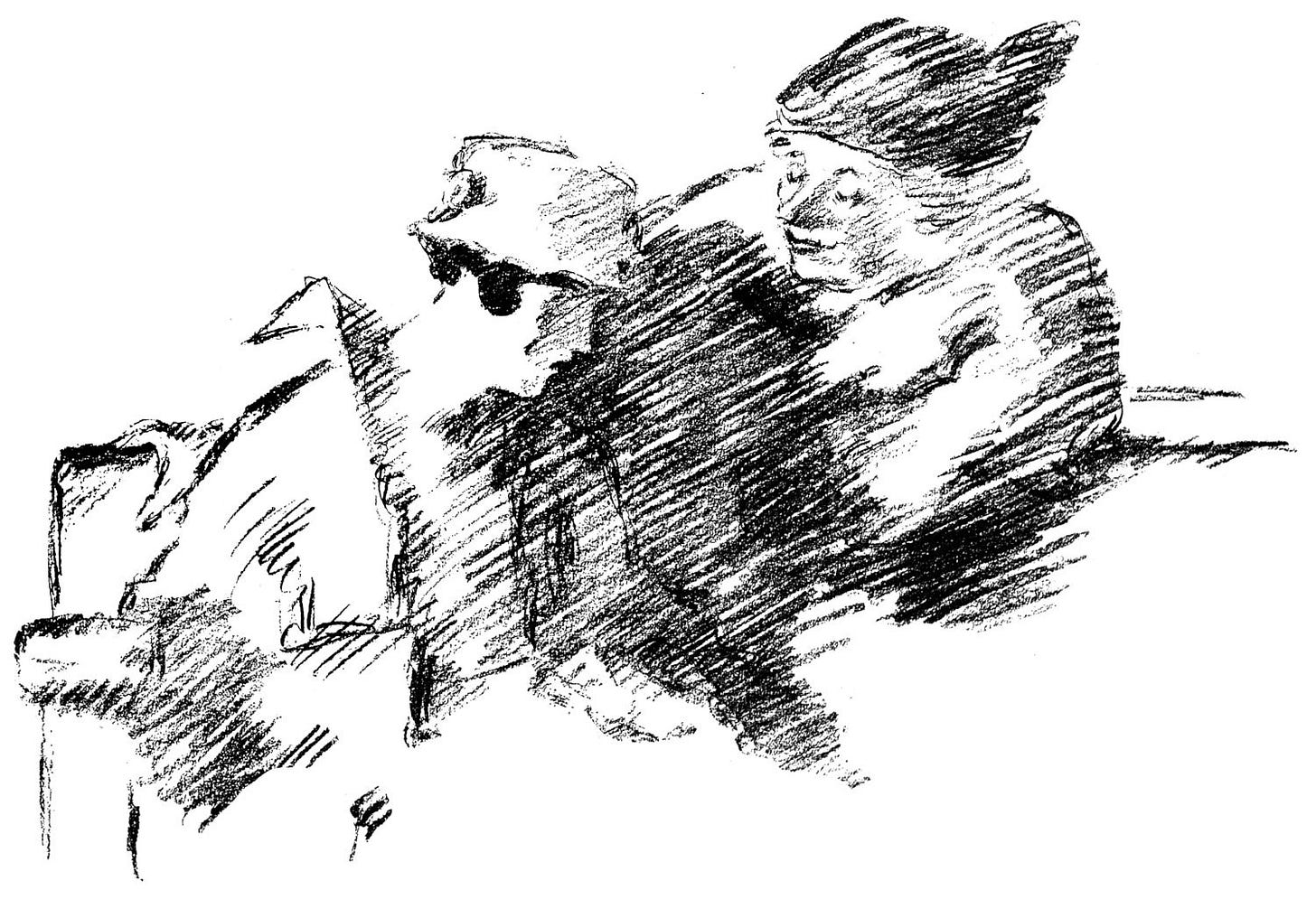—: The Kiss :—
Sheer joy of youth and madness of the moon And all the illimitable longings of my blood Leapt in me. I was half mad with the sweet Delirious feel of living. It was then I caught her eyes upon me, misty veiled, And unashamed I kissed her on the mouth, Holding my perfect moment, proud and glad.
Florence Kiper Frank (1886-1976)
P: Poetry (1914+), The Little Review (1915+), The Masses (1915), Poet Lore (1915), The Midland (1917), Contemporary Verse (1918), The Dial (1918), Youth: Poetry of Today (1919); A: The Chicago Anthology (1916), Poems of the Great War (1916), The New Poetry (1917), Christ in the Poetry of Today (1917), New Voices (1919) C: The Jew To Jesus & Other Poems (1915), The Silver Grain (1976); plays, short-stories, etc.
“Florence Kiper Frank, poet and author, died Sunday at her New Haven home. She was 90 years old. Mrs. Frank... was a graduate of the University of Chicago. Before World War I she was a member of the Chicago Literary Circle, among whose members were Amy Lowell, Carl Sandburg, Sherwood Anderson, and Edgar Lee Masters. Her first published poem appeared in 1904, and she was also the author of two poetic plays. Her last published work, a volume of poetry entitled The Silver Grain, was published in 1956. There are no immediate survivors.” (New York Times, June 29, 1976)
[illustration by Elizabeth Grieg, The Masses, 1915]
It’s pride month! Yay! To celebrate I will be posting a bunch of queer Forgotten Poems over the next wee while, starting with a sly Walt Whitman post a few days ago, and now following up with Florence Kiper Frank’s ‘The Kiss’, a poem that is explicitly about having pride in same-sex romance and intimacy! Frank was probably bisexual, from what I can tell—not that it necessarily matters, but also, there is a lot of bi-erasure in the world, so it’s worth noting.
In historical discourse, there is often a focus placed on the repressions and exclusions of the past, and of course, this is a very real and very necessary project. We should have a clear idea of how things were, so we never, ever let them get that way again. But at the same time I think it is important to recognise that just because the dominant histories of the 1910s and 1920s, for example, have typically ignored and erased queer writers, this doesn’t mean there weren’t a whole range of queer writers present at the time, being published and read by a wide range of readers, both queer and otherwise.
It is commonly assumed that history is a smooth line, and that conditions for marginalised and oppressed groups have progressively gotten better over time. This leads to—and is based on—a whole mess of over-simplified notions about time and ‘development’, rooted in the core idea that the “past” must be “less” than the present (less intelligent, less progressed, less developed, etc.), as if the past is a ‘child’ to the present’s ‘adult’ (a distinctly humanist perspective). But this is not the case at all. In England and America in the 1910s and 1920s, queer and ‘gender explorative’ writers were far more visible than they would be in the 1940s and 1950s, for instance, which were, as far as I can tell, far more repressive, at a mainstream, “common-sense” level . . .
For Florence Frank by Dick Whyte the birds don’t move in straight lines, nothing does: curved eternally— but never returning xoxo dw
Forgotten Poets Presents:
Forgotten Poems, a living anthology of obscure and out-of-print poetry from the late-1800s and early-1900s. Explore the archives:
Paul S. Nickerson – The Difference (1921)
—: The Difference :— We wandered forth at eventide, But when he breathed his love to me, I walked unseeing at his side; There were no rocks, no pines, no sea, With him so near to me...
More poems about kissing . . .
Pauline Cahn - Rest (1918)
—: REST :— I am so tired—so tired. I see too many people, Read too many books. Do too many things. I hate the theaters, I hate my work, I want you,—only you...
More poems about the moon . . .
Lewis Alexander - 4 Short Poems & Some Haiku (1923-28)
—: Dream Song :— Walk with the sun, Dance at high noon; And dream when night falls black; But when the stars Vie with the moon, Then call the lost dream back...










Thank you for these! It's fascinating to see the writings of queer writers from so long ago. Not just to ponder on how far we've come as a society but to juxtapose the attitudes of writers then and today in how such subjects are tackled.
Especially love the notes on Florence Kipper Frank.